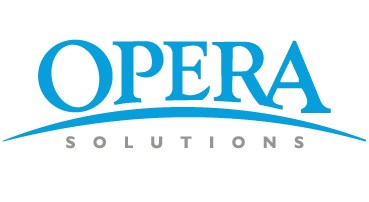An Unconventional Business Model
The business of healthcare is unlike any other business. The primary objective of a health system is to provide best in class services, rather than to maximize profits. Most people would agree that this is a good thing. It’s also a rare thing in the competitive world of business. The admirable commitment to “patients before profits” puts every health system’s cash flow at constant risk. A health system has more control when it comes to providing services, but relatively little control over collecting payments for these services. Inefficiencies in collection processes and missed charges result in significant lower revenues and directly impact the bottom line.
A Documentation Problem
The typical electronic medical record (EMR) is a novel-sized file that houses comprehensive patient and treatment information. Records are completed by a range of specialists including receptionists, techs, nurses, scribes and physicians, all with various specialties and levels of experience. These manual touch-points result in human errors and these errors end up causing significant revenue losses. The inaccuracies may take the form of incorrect coding, missed charges, or overcharges that either result in underpayments or claim denials from payers. Ultimately, this means hospitals receive smaller payments and/or delayed payments for services rendered. A study from The Journal of the National Medical Association reported that medical record error accounts for an average annual loss of 25%-30% in potential hospital income.
In response to the problems of missed charges and complex collection systems, the industry has developed new strategies and processes that are implemented by large teams. Collectively, these processes and teams form the vital practice of Revenue Cycle Management.
The Current Solution
RCM is a key area of investment for hospitals around the world. The objective is to achieve the most appropriate reimbursements for services by improving capture, management, and collection of charges. Current RCM applications include: Advances in EMR technology that assist providers as they complete patient charts, audit teams that review completed records for inaccuracies, and collection initiatives for past-due accounts. There is no doubt that these teams are driving positive impact, and working very hard to do so. But why simply work hard when they can work smarter too?
A majority of current RCM work flows require intuitive decision-making. Auditors must comb through thousands of accounts, relying only on experience to help them decide which records to audit first. Collections teams must do the same, making educated guesses about which accounts will become delinquent or which course of action to pursue - reimbursement, settlement, or write-off.
The Opportunity
These methods are effective, but they aren’t optimal. By leveraging the standardization of data across the healthcare industry, new solutions are smarter than ever before. Solutions based on artificial intelligence and machine learning are putting the massive amounts of data to work, enabling RCM teams to manage the revenue cycle with greater efficiency, and allowing health systems to achieve greater profits.
For auditors, predictive models can assist the manual search process by automatically identifying accounts with the highest likelihood of a missed charge. Narrowing the search in this way also increases auditor productivity. These sophisticated techniques surpass heuristic business rules by identifying complex patterns to generate more accurate predictions and by continuously learning from user feedback to self-correct.
For collections teams, machine learning enables agents to tailor-fit the review process for each account. AI solutions give collections teams more confidence to answer questions like, “Which accounts are most likely to complete full reimbursement?” “Which are most likely to become overdue?” “Of the delinquent accounts, which will pay partial settlements, and which should be written off?” Powerful AI programs answer these questions and provide structured treatment pipelines for each account. Armed with these new insights, teams can collect more, faster.
Artificial intelligence is the future of RCM. As technology continues to evolve in exciting new ways, healthcare organizations will continue to reap the benefits – it’s just a matter of taking the plunge.
At Opera Solutions, we design and deliver Artificial Intelligence tools for RCM. With the proper direction, these tools are transforming our partners into healthier and more profitable organizations. Check out this case study and learn how our Revenue Commander tool creates massive impact for our clients.
Citation: Journal of the National Medical Association, "Addressing Medical Coding and Billing. Part II: A Strategy for Achieving Compliance, A Risk Management Approach for Reducing Coding and Billing Errors". (2002).



